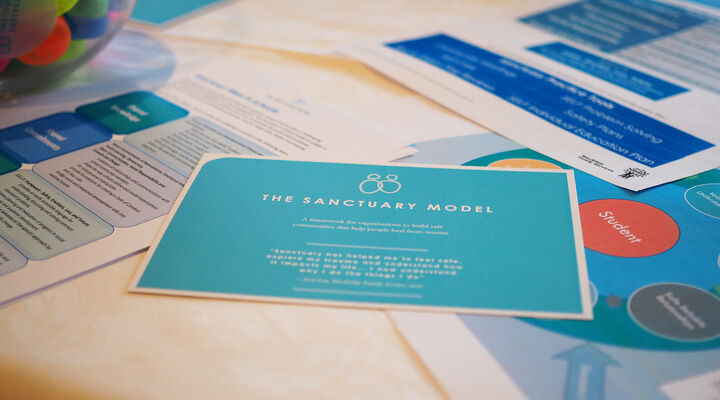6 May 2020
Critical shortage of foster carers as COVID-19 crisis impacts vulnerable families
As Victorians are being encouraged to close their doors to protect their families, foster carers are opening their homes to support children and young people who are unable to live with their own families.
The support of these volunteer frontline workers is more essential than ever during the current time of uncertainty for families who are vulnerable to the potential impacts of social isolation.
In recent years, agencies like MacKillop Family Services have been experiencing a critical shortage of foster carers, and the situation has worsened since the arrival of COVID-19. New enquiries about foster care have dropped by 35% on the same quarter last year, raising the risk of a chronic shortage of carers in a few months’ time.
Dr Robyn Miller, CEO of MacKillop Family Services, says the system is reaching crisis point.
“Foster carers are the forgotten heroes of our community,” she said. “They play a critical role in caring for children who have experienced trauma, abuse or neglect, but we simply don’t have enough carers for the number of children requiring a safe, loving home”
“We are concerned the problem will be compounded in the coming months, as people experiencing family and domestic violence are at increased risk when they are isolated from family and the community, and are unable to leave or put other protective measures in place,” added Dr Miller.
Dr Miller is calling on Victorians to use some of this time at home to reflect on their family’s capacity to provide a loving home for a child who needs a safe place to stay.
“Right now, we are acutely aware of the importance of family and the safety of a nurturing home. During this time of isolation, I encourage people to consider whether they could provide safety and care to a child or young person in the future. Families who are home together now have the opportunity to find out more about foster care together and discuss how fostering could work for their family unit.
“Our existing foster carers come from all different walks of life, some are married, some single, they can own their homes or rent, be in a same sex relationship or single, retired or working full-time. The most important thing is that they want to provide a safe and nurturing home for a little one in need or a young person at risk,” Dr Miller said.
MacKillop has adapted the way it is accrediting foster carers by using online resources for training and information exchange sessions so that the process, which takes an average six months, can meet the urgent need.
“Foster carers are at the frontline in responding to COVID-19, and I can’t thank those who help us provide safe homes for children and young people enough. But they need help and it’s a need that can’t wait as this crisis is creating a heightened risk for families. Increases in family and domestic violence and alcohol and drug abuse results in more children needing safe homes,” Dr Miller added.




